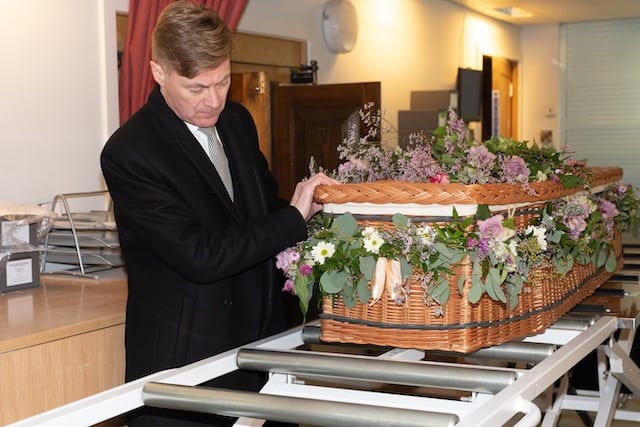
The majority of individuals have to weigh the advantages of cremation versus traditional burial. Incredibly, cremation has been gaining popularity due to the greater number of people living in the comparison the traditional burials.
According to research, according to statistics, just 3.6 percent of Americans agreed with cremation in the 1960s. In the early 1960s, the National Funeral Directors Association predicted that this number would rise to 63.3 percent in 2025. As a result, many funeral homes in Tulsa, OK, offer cremation services.
Why is it that cremation is getting more popular than funerals that are traditional funerals within the US? We’ll try to discover in the following article:
Preservation of the environment
There is a rising awareness of and concern about the environment in the United States. Therefore, many States are now looking at cremation as a way of paying their final respect to loved family members. For instance, cremation in Dallas, Texas, has grown to be a popular choice that is helping green movements in aiding the preservation of the environment.
Although cremation may not be completely eco-friendly, many Americans favor it more than traditional burials. This is because it helps take care of natural resources and decreases the area used for burials.
A reduction in the income of the household
A decline in the financial resources of the majority of households has resulted in the inability of financial stability for families to plan funerals or burial services. Cremation is seen as an affordable and respectful alternative. Furthermore, there’s an array of choices to select from, from what kind of cremation service is most suitable for your family and you, with flexible financing options.
Motives related to religion
In the early years, so many religions traditionally preferred burial. Certain denominations, like the Catholic Church, opposed cremation until the year 1963. They then loosened their stance towards cremation. Today, however, the majority of Catholics, as well as other religions, accept cremation as a choice of theology, as well as some churches create columbaria to commemorate the death of their members.
People who do not subscribe to any religion are more likely to prefer cremation instead of traditional burials. The Go Cremation Association of North America has discovered that the use of cremation is a popular choice among people who do not have any affiliation with particular religious beliefs.
Flexibility and mobility of the family
In the past, many houses had family plot cemeteries and graveyards in which families laid their loved ones to rest. It was a good idea as the bulk of the family stayed near each other for a lengthy period of time. Anyone wanting to visit a loved one’s burial site would be able to do it regularly without the need to travel long distances.
In the modern age, the way families move around has drastically changed as people travel great distances around the world in search of challenges. It is not logical for a majority of people living in America when someone says that they’d love to be buried with their family members who died long ago.
Cremation has made it feasible for people to establish a suitable timeframe that allows family members who live in distant locations to travel when they want to attend the funeral service. Additionally, because of the variety of modern methods to store ashes as well as innovative ways of scattering them, people are now considering cremation as the most effective method to create memories of those who have lost their loved ones for a long period of time.
Final Thoughts
A family member’s death can be very emotional and difficult. The process of planning the funeral is a stressful task for the family because of the numerous costs associated with funeral arrangements. However, the majority of people have agreed to prearrange arrangements with National Cremation while still living.
This has reduced the majority of difficulties families face when planning their final funeral. Cremation is more cost-effective, while keeping family memories alive even after their death.
